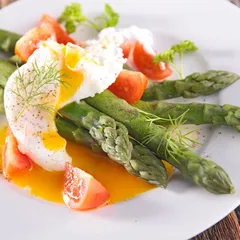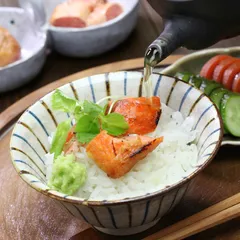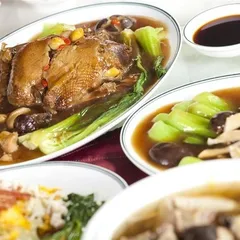How to eat brunch nutritious? Food recommends N high-value recipes
Those who can get up and make breakfast on weekends are all "warriors", and editors with advanced laziness cancer are destined to be "deserters". On weekends, as long as you give me a bed, I can sleep until I can't think about it. However, I endured breakfast. What should I do for lunch?
A hard-core foodie friend of Xiaobian gave me Amway a way to eat, called Brunch. Friends who are good at English can tell at a glance that this word is a combination of breakfast and lunch. Brunch A satisfying breakfast and lunch is perfect for a lazy weekend.
What should Bruch eat? This friend of Xiaobian is cute and beautiful, and most importantly, he is generous, sharing her Brunch menu with Xiaobian.
Recommended Brunch menu

Top notch foodie: vicky
To introduce her in one sentence: baristas who can't take pictures are not good foodies!

Black coffee + strawberries + cinnamon mist muffins
Fog muffins
Ingredients: 1 tablespoon Earl tea, 1 measuring cup of milk, 1 egg, 1/2 measuring cup of flour, 1 teaspoon of baking powder, a little salt, a little sugar, cinnamon powder, maple leaf syrup, lemon slices
Practice:
1. Put the tea leaves into milk, bring to a boil, and let cool.
2. Beat eggs into a bowl, then add flour, baking powder, salt, sugar, and cinnamon powder, then add milk boiled in tea leaves, and stir until a paste.
3. Put less oil in the pan, heat the pan slightly, spoon a spoonful of batter, put it into the pan, spread out the batter with a spoon, and cut both sides until golden yellow.
4. Finally, stack the fried cakes, put two lemon slices, and finally pour maple syrup on it.

Benedict eggs + freshly squeezed juice/coffee
Benedict egg practice
Ingredients: eggs, lemon juice, butter, two pieces of coriander, Russian red sausage, thick bread
Practice:
1. Open the egg, separate the egg yolk protein with the shell, and place the two egg yolks in a bowl. Put some lemon juice and melted butter into a bowl, and beat the eggs with an egg beater until thick. Slowly add a small amount of olive oil while beating the eggs.
2. Add the chopped coriander and a small amount of salt to the eggs, and continue to stir with an egg beater until the egg liquid becomes thick. Then set it aside.
3. Pour water in the pan, boil it to a minimum heat, slowly beat an egg in, and then use a large spoon to gently push the egg white towards the middle to avoid letting it fall too loose. When you see that the egg white on the egg yolk starts to turn white, turn off the heat, cover the pot and simmer for a minute.
4. Cut the thick bread into two slices. Pan-fry the Russian red sausage with little oil and spread on thick bread. Then stack the boiled eggs on the Russian red sausage, and finally add egg sauce.

Coarse grain bread + fried eggs + Russian red sausage + fruit salad + banana yogurt
Sugar core egg practice
Material: Eggs
Practice:
Heat the oil in a saucepan, beat in the eggs, cover the lid, and serve for 2-3 minutes. It should be noted that frying soft eggs does not need to be turned over, as long as you see that the egg whites are fully cooked.

Salmon toast + potatoes + boiled eggs + grapes
Salmon toast
Ingredients: sliced bread, salmon, avocado
Practice:
1. The salmon and avocado are cut into slices.
2. Bake the bread for 2 to 3 minutes.
3. Spread the cut salmon and avocado on the bread slices.

Scrambled eggs + mushrooms + sausage + green apples
Practice of tender scrambled eggs
Material: Eggs
Practice:
1. Beat the eggs and add a small amount of salt. If you want the eggs to look more tender, add a small amount of water to them and stir well.
2. Put a tablespoon of oil into the pan, heat the pan lightly, boil the oil and pour in the egg liquid. When the edges of the egg liquid slowly begin to solidify, they can be flipped.
3. Use a fork to cut the surface wide to speed up cooking and create layers.
4. Turn off the heat when the eggs are seventy or eighty ripe and use the remaining heat of the pan to fry the eggs.
Method of frying mushrooms
Material: Mushrooms
Practice:
1. Clean the mushrooms and cut them into slices.
2. Put the oil in a pan and heat it lightly. After heating the oil, add the mushrooms, stir-fry them until done, and add a small amount of salt to taste.

Minced meat + fried eggs + shrimp soba noodles + black coffee
Fresh shrimp and soba noodles
Ingredients: 1 handful of soba noodles, 3-4 fresh shrimps, a little chopped green onion
Practice:
1. Make the stock in advance.
2. Clean the prawns, blanch them in water and remove the shells.
3. Boil soba noodles in hot water, serve out, add shrimp meat, and sprinkle with chopped green onion.
4. Slowly pour the boiled stock into a bowl.
Click on the next page to view: How to low-key and elegant Brunch